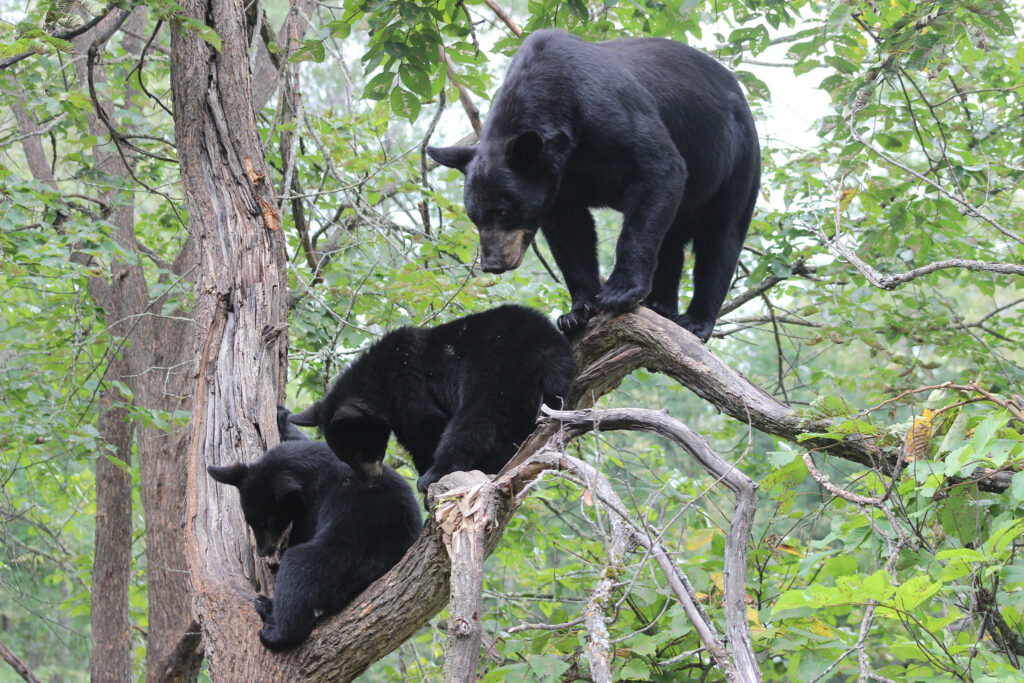
Encounters between black bears and Superior National Forest visitors has increased this year, and the supervisor of the Superior National Forest, Constance Cummins, has issued an order requiring all visitors to the Forest to take actions to prevent bears from getting human food. Unless it’s currently being prepared, eaten, or transported, food must be stored so its safe from bruins.
Several areas across the three-million acre National Forest have had repeated bear sightings and interactions. They include Rose Lake, Duncan Lake and Daniel Lake on the Gunflint Ranger District; the Moose Lake Chain and several campgrounds including Birch Lake, Fall Lake and Fenske Lake on the Kawishiwi Ranger District; and Agnes Lake on the La Croix District.
WTIP reported that on July 15, on Duncan Lake, “four bears aggressively pursued a hanging food pack at a campsite. According to reports, the bears, a sow, yearling and two cubs, would not flee even when whistles were blown and pots and pans were banged together.”
Stiff penalties
The Forest Service says the increase in human-bear conflict is probably because of several reasons. The National Forest is once again a popular destination this year, with many novices who may not be aware of the importance of proper storage. More importantly, the summer’s drought has caused widespread failure of berries that bears depend on for late season gorging before preparing for hibernation. This has caused many to seek out alternatives, like food brought by campers and others.
“This is bear-country, people are going to see black bears. They live here. That’s not concerning to me, but bears at dumpsters, lingering at campsites and stealing packs is,” said Cheron Ferland, Superior National Forest Wildlife Biologist. “Once they get a reward, or food, they will keep doing whatever it takes to get that reward again.”
Now, failure to properly store food could result in up to a $5,000 fine or six months in jail.
In addition to food, almost any other substance that could attract bears must also be stored safely. That includes toothpaste, sunscreen, and bait.
All such items must be in either a container than can withstand 200 foot-pounds of energy, an approved trash receptacle, a hard-sided vehicle, or hung off the ground. Proper hanging means 10 feet from the ground and four feet horizontally from any other tree or limb.
Preventative step
The Forest Service is also using a new bear management system this year, and asking all visitors to report all sightings. It is gathering more reports than previously, but officials say the rise can’t be entirely explained by data collection.
The new order is intended to prevent problems from becoming worse.
Once a bear successfully obtains food from human sources, it can quickly get in the habit. This means that not only does a successful raid probably ruin a canoe trip, but will lead to more problems for future visitors. It’s also very bad for the bears, which can be killed if they are too persistent.
The storage requirement includes an exception for the many firefighters who have been working in the Boundary Waters this summer, or those with other authorization.
More information:
- Superior National Forest Announces Food Storage Order to Protect Both Visitors and Bears – U.S. Forest Service
- Forest Service considers next steps as bear encounters spike in BWCA – WTIP
- Be bear aware – U.S. Forest Service

